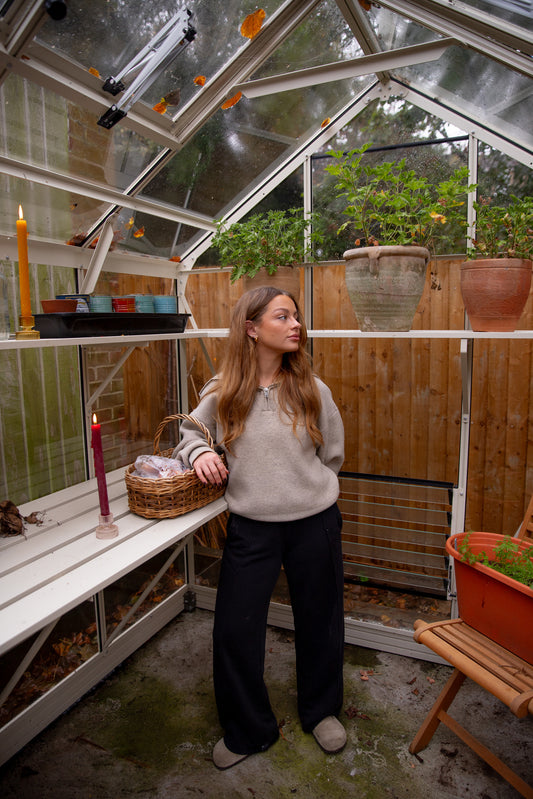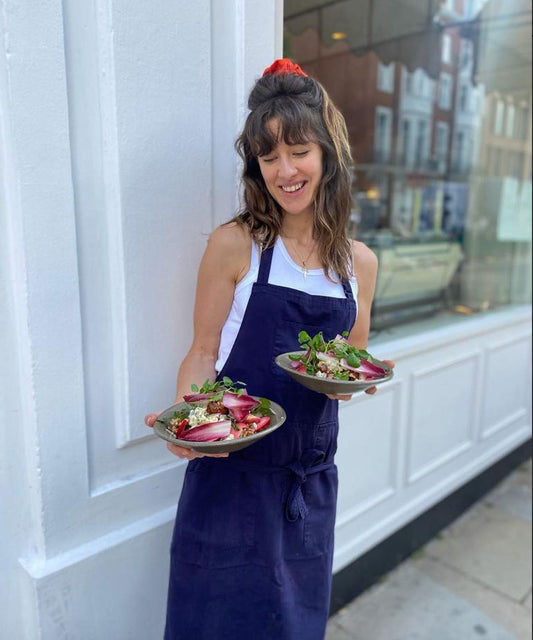This Earth Day, we’ve partnered with the Organic Research Centre by donating 100% of the profits from sales this weekend to support their work. The ORC is the UK’s leading independent research organisation for agroecological farming. Building a future where organic and locally produced food becomes a priority is essential to the health of our planet and for ourselves. The ORC are empowering farmers to make the change in building this future.
We sat down with team member, Philippa Hall, to hear about all their work and aspirations over the coming years.
Tell us about the ORC: what do you do and what are your core objectives?
“We are a small charity, yet we are the UK’s leading independent research organisation for agroecological farming approaches such as organic and agroforestry; we drive our own research agenda to tackle global issues by acting locally and finding community-based solutions for farmers and their supply chains. It has never been more important to achieve our common goal of mitigating climate change, protecting the natural environment, and enhancing biodiversity.”
How do organic food production systems and agroecological land management contribute to a more harmonious and symbiotic relationship between humans and the rest of nature?
“A major concern in food systems is the increased contamination with pesticide residues, resistant pathogens and other harmful chemicals and microorganisms from agricultural production or processing. The health and nutritional value of agricultural food products is strongly linked to, and inherently depended on the production process and farm system in which the crop is grown, or the animal is raised etc. One of the four guiding principles of organic agriculture is the aim to promote health on all levels of the farming system. Since health concerns also constitute a main reason for consumers to buy organic products, ‘health’ is a topic of utmost importance for the organic sector.“
In what ways does organic farming have a positive impact on both soil health and human health and wellbeing? In what ways are these related?
“Farmers who aim to run healthy farming systems are aware that soil health is fundamental and the base for health in all other domains: plant, animal, human, ecosystem. Soil physics, chemistry and biology are interlinked and play a role in maintaining productive agricultural and horticultural systems. The Partnership worked closely with farmers, growers, advisers, and the wider industry, to draw together and build on knowledge and experience to create accessible guidance and tools to help farmers improve soil health. ORC’s work formed part of the AHDB GREATSoils programme that focuses on this.”
What do you see as the future of farming and what role does the ORC play in this?
“Our role is to offer:
• research that will always be based on the organic principles of health, ecology, fairness, and care
• that wherever possible our research findings will be made accessible to everyone
• to share our expertise across the whole agricultural community, regardless of whether a farm describes itself as organic or not
• to act in the interests of future generations so that everyone can enjoy our beautiful planet for millennia to come.”
Can organic, agroecological farming have a positive impact on the wellbeing and livelihoods of farmers?
“Definitely, Farmers who aim to run healthy farming systems develop the intuition and ability for self-observation (e.g. (dare to listen to) inner voice, gut-feeling) as part of the observation process of the farm; and they are aware of their own strengths and weaknesses and know their own resources and those of the farm (e.g. social network, basic trust). They also are aware that they not only contribute to human health through their high-quality food products, but that they also deliver highly valuable outputs in other areas (e.g. environment protection, public goods, cultural landscape, water quality, etc.). They get across the story and value of the product and the farm through close communication with, and involvement of customers, consumers, retailers, processors, etc.”
What are your plans for ORC in the future, and what’s the best way that we, as the public, can help to support the organic mission?
“We are focusing on agroecological solutions to food, farming and environmental issues. With your support we can: help more people transition to naturally healthy and resilient farming systems; boosting food security, help to encourage wildlife to flourish in our countryside and take positive action in the climate crisis. For example, our research and development of population breeding in wheat has changed EU law on the sale of organic seeds. The legal recognition of genetically diverse seeds in organic agriculture, that farmers can adapt to their growing conditions, makes the organic cultivation of these crops much more viable.”
Find ORC here.










